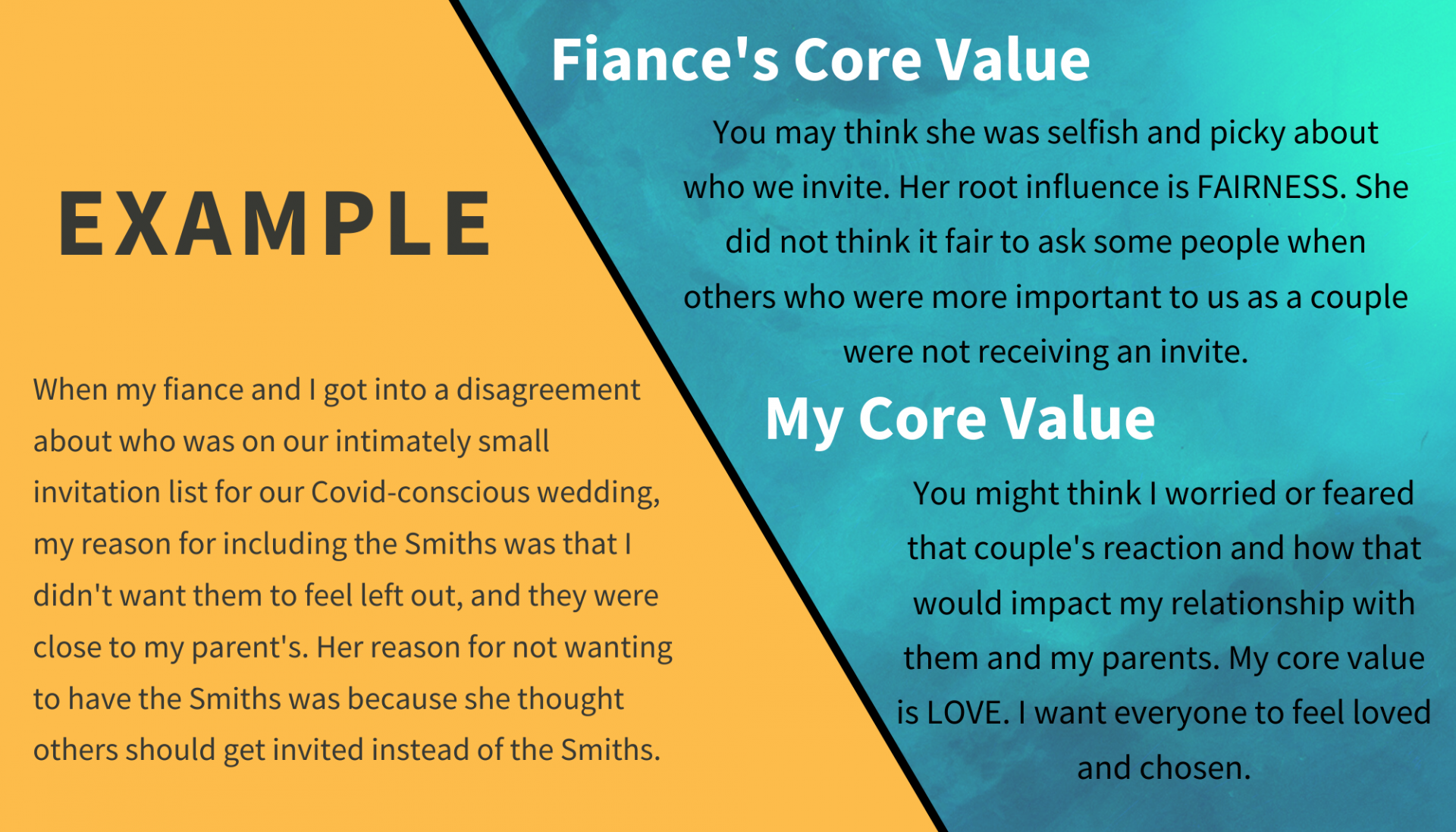Trust Your Core Values: No More Excuses, No More Free Passes
It's finally happening. You found that person that makes your heart sing and your butterflies tap dance. You have been waiting for this for a long time. No way anyone is going to mess this up—especially you.
Think about that special someone you call your significant other. Woah. I just felt that heart flutter, by the way. I bet you could spend hours telling me things you love about them and where they excel. Could you also list all the things that need work? Maybe not without some hesitation.
If you have been looking for love for a long time and feel like you have finally found it, I am willing to bet you would do almost anything to keep it. I love that I can almost feel the strength of love someone has for their partner rushing through the air. It is equally one of my least favorite mindsets because that same person often falls into a pattern of making excuses for their partner's negative behaviors.
Sometimes a significant other does something that we may not like, but if we use the mindset: we love them and never want to lose them, we tend to bite our lip and let it go unaddressed.
Leaving things that bother us in our relationships unaddressed jeopardizes its longevity.
Does letting behaviors go unaddressed work? Often we have to implement other tools to keep ourselves from breaking our cool for it to work. Agencies like downplaying negative behavior, telling ourselves that our love is strong enough to get us through, and convincing ourselves that our partner will change someday can create the relationship's environment to grow in tension.
Is Fear A Good Motivator?
Fear-based relationships work like this:
1. We hold our tongue: We don't want to scare them away, so instead of addressing them, we take a deep breath, smile, and implement our tools to keep us in line. (Ex. "They will see how much I love them, and it will change how they treat me.")
2. The negative behavior continues: Since it goes unaddressed, our significant other doesn't see or realize there is an issue, and they assume their action is appropriate.
3. Reach a breaking point:When we let this behavior and pattern continue until we eventually come to a breaking point, our fear of losing them ends up being replaced with anger that they treat us poorly.
4. Finally, address it: When we let it fester for so long, we usually end up blowing up at our significant other when we can't take any more. Our significant other can generally view our eruption as coming entirely out of the left field. Our partner usually has no idea where your attitude is coming from, and they tend to find it wholly inappropriate.
5. Their response: Typically, when someone blows up at us when we least expect it, our guard is down. Our knee-jerk reaction that is likely to occur when suddenly getting chewed out is defensiveness. There are two main ways people respond,
-
They get mad: When their character is suddenly in question (they did something horrible), their initial response may be to get upset.
-
They deny it all: If they've never realized you disliked certain behaviors, they will have no history of viewing scenarios the same way you do. It makes it harder for them to see things from your perspective if you've not been honest about how you felt in the past. If they feel attacked and have no point of reference, the initial response may be to deny the issue you brought to their attention.
6. Your fears are validated: When an argument occurs, it is common that people feel disconnected from each other mentally and emotionally. When your biggest fear is losing someone, that disconnection could feel like a small taste of what life could be like without them. And that terrifying thought takes over all other emotions.
7. Your Response: With that fear looming in your mind, the easiest way to instantly remove it is to stop the argument. The fastest way to end an argument is usually to admit you were the one in the wrong.
8. We hold our tongue: Feeling like we could have lost that special someone we have been waiting for our whole lives is terrifying. So the next time that behavior happens, we go back to biting our tongue and using that fear to keep us from blowing up again. We continue to leave the negative behaviors unaddressed.
A constant fear-based approach is exhausting and usually a terrible long-term motivator. In all reality, this cycle of holding our tongue usually doesn't work forever, and the relationship is likely to suffer to the point of ending.
How can we avoid this cycle from the beginning?
Trust Your Core Value(s)
Preventing this cycle depends heavily on what you use to navigate conflicts and decision-making in your relationship.
- Setting Boundaries vs. Letting Anything Happen
- Listening vs. Tolerating
- Sharing vs. Being Closed Off
- Making Expectations Clear vs. Not Explaining What is Important to You
-
Creating Goals Together vs. Trying to Change Your Goals to Match Your Partner's
We are motivated by what I like to call our more profound life core value. My definition of core value is,
"The underlying feelings or thoughts that influence your words, actions, and choices; typically fueled by a personal belief, value, quality, or character trait."
The top three core values I have seen in people are love, fairness, and happiness.
People spend most of their conscious and subconscious time and energy focused on living out their core values. This affects almost every life decision, even if they don't realize it.
Trust Your Core Value(s)
Intentionally reflecting on your core value will help you understand why you feel and react so strongly to different life situations.
If you find yourself in a relationship where you are so utterly afraid of driving away and losing that loved one, I know what your primary core value is, and deep down, so do you. It is love.
Now that you know your core value(s), how can that help?
Remember, core values are powerful tools. Existing in a place filled with love can be healing and rewarding because love itself is safe. When love is taken away or absent, we can start to feel unsafe.
WRONG. Just the thought of being without love can bring those unsafe feelings. So this then becomes a conversation of how to regulate those scary emotions.
Regulation and Confidence
First off, I am not yet an expert on step-by-step long-term programs. All I know is that there are some character traits and qualities that can help you. Having tools like,
1. Intentionality: Being intentional about your goals and your mental mindset when achieving those goals is vital to your success.
2. Drive: Having the drive and passion for seeing and feeling change is beneficial.
3. Grace: Making sure you give yourself lots of grace will help keep you from tearing yourself down mentally.
4. Help: Support from a trusted confidant can aid you immensely with your goal.
Letting negative behaviors go unaddressed doesn't work. If the actions do not change, we either end up cycling through our fear-based cycle, which is exhausting, or we eventually end the relationship due to our mental health suffering so much. To achieve emotional regulation and self-confidence, we need to stop giving our significant other's free passes for their inappropriate or uncomfortable behaviors toward us. We also need to stop giving ourselves excuses for not speaking up and having a conversation about our boundaries.
If nothing else, remember this, your core value is not evil or wrong. Trust it to bring you peace and clarity.






